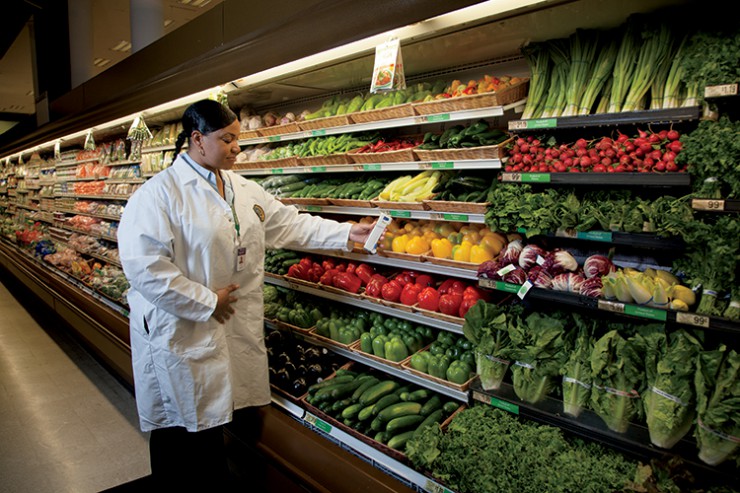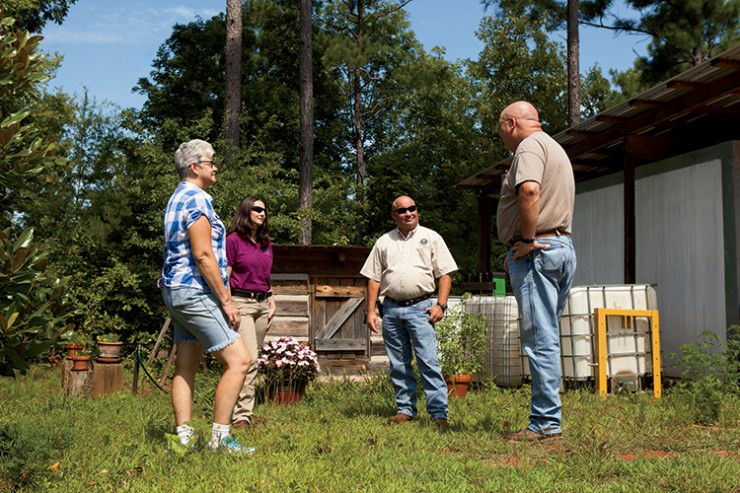Home > Georgia > Georgia Farm to Table > Georgia Food is Safe and Sound
Georgia Food is Safe and Sound

The goal of the Food Safety Division of the Georgia Department of Agriculture is clear. “Basically, we are all about food safety,” Director Natalie Adan says. “We affect people’s lives every day. Everybody’s eating food, so they’re relying on that food safety aspect.”
The division has approximately 50 inspectors working in different regions on one of four programs that ensure food safety. Particularly notable is the fact that the staff logged more than 24,000 hours of training in the past four years.
“We’ve been able to get a lot of training in, and this has been little to no cost to taxpayers,” Adan says.
The division has four main programs – retail, manufactured foods, poultry and egg graders, and farm safety. The retail program regulates facilities such as grocery stores, convenience stores, bakeries, mobile food trucks and food warehouses. This division includes checking scanners and scales to make sure consumers are being charged accurately for the correct weight.
The manufactured food program regulates food production facilities, particularly the larger ones where products for wholesale are stored. This also includes the dairy program, covering ice cream plants, cheese facilities and dairy farms.
The poultry and egg graders program checks that poultry and egg purchases meet quality, condition, temperature, packaging and storage requirements, to name a few.
The newest program focuses on farm safety, an important topic in the agriculture community.

Education a Key Component
“We strive toward the educate-as-you-regulate approach,” Adan says. “For instance, we will typically work with a facility before they open so we can make sure that they are putting everything in place so they can operate safely and effectively. We work with business to let them know what the expectations and regulations are, reviewing plans or labels, and to get them up and running and licensed.”
Kerry Dunaway, who owns Greenway Farms of Georgia in Roberta, attests to the cooperation that exists between the division and Georgia’s producers.
The Dunaways began their farm in 2008, raising livestock and growing vegetables while staying very conscientious about producing natural food and farming sustainably.
“We have had a good bit of contact with inspectors, and they have been terrific working with us,” Dunaway says. “When we have questions or aren’t sure about something, they’re there to help. They want to see farmers succeed.”
The Food Safety Division was particularly helpful when the Dunaways wanted to add a certified kitchen to their operation in 2013, where they teach canning classes using their fresh fruits and veggies. To operate a community or commercial kitchen, GDA has certain guidelines operators and facilities have to meet to become certified.
“We had never done that before, and we didn’t really understand everything we needed,” Dunaway says. “Our inspector told us things to do and not do, so when we were ready for the final inspection, everything was perfect.”
In 2012, the division implemented cottage food regulations to help small and new companies who specialize in non-potentially hazardous foods to get started with their business. These include products such as biscuits, dried fruits, jams and jellies, granola, popcorn and more.
“It gives them a chance to get their products out there before they have to spend a whole lot of money,” Adan says. “It actually allows individuals to produce their products in their home kitchen. We do an initial inspection of their kitchen, and they’re able to sell their product within the state, at farmers markets and even over the Internet to consumers in Georgia.”



